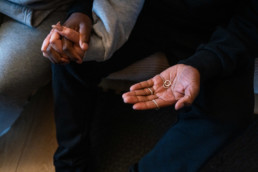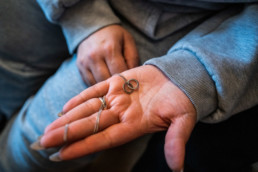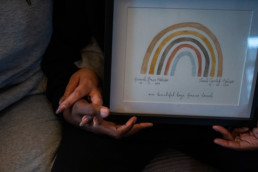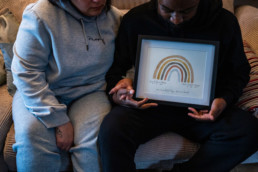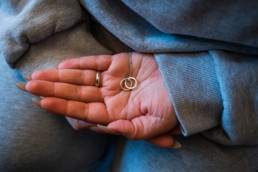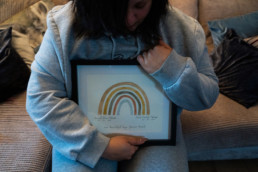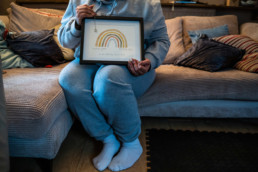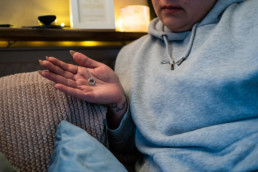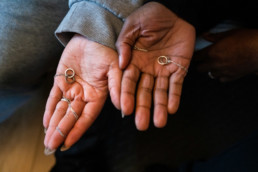Talking about baby loss
When I first started to consider writing about baby loss, I was, initially, tentative and apprehensive. Not only because I’m acutely aware of how personal a story this is for each family that has experienced it, but because it is an experience which I’m grateful never to have been through.
I honestly didn’t know what reaction I would get, particularly in response to calling out to families who have experienced this. The first big question that came up for me was, how do you approach someone who’s grieving to talk about it for a feature? All I know is that the experience of baby loss is not talked about nearly enough, and asking people how they feel at any time in their grieving process does not happen enough either.
Inviting a family to share a part of their personal and emotional journey with a stranger felt daunting to me.
Then, quite suddenly and unexpectedly, we found ourselves in our own grieving process. The significant difference here was that this was at the end of life, not the beginning of life.
The complex layers of emotions that followed found me explaining to my 15-year-old daughter that there is absolutely no rule book for grief; it is unique to each person. It’s theirs to own, be in and live with, as they need and want to. It was then that I was introduced to Pytsje through a friend of mine.
Pytsje and her husband, Bruce, have two boys, aged 11 and 8 years old. They are a warm and open family with a strong faith and community within their local church. The kind of community that offers a helping hand in bringing up each other’s children, and an unspoken support for one another in times of need.
In 2019, Pytsje discovered she was pregnant with twins. At around 17 weeks pregnant, she went into early labour, and sadly, she lost one of the babies. At 20 weeks, her waters broke. She went into hospital where she and the surviving twin were monitored. As the local hospital didn’t have the specialist equipment needed in their baby unit, they were transferred to another hospital over 50 miles away.
The logistics of Pytsje’s stay in a hospital this far from home, and over the school holidays, were intense to manage, with the boys spending periods of time with various family members across the country, to enable Bruce to make the two-hour round trip on most days to be with his wife.
After four weeks in hospital, Pytsje gave birth to a baby boy. He lived for three days.
At first, Bruce was reluctant to be part of our conversation, however, I feel his words have more impact than perhaps he realises. The delicate balance between the experience and knowledge of medical staff – from seeing these processes multiple times in their work – and their understanding of one family’s circumstances, might be tested by their overstretched roles and hospital bed shortages.
He poignantly added, “These events can become second nature to a doctor, as it’s likely that they know what’s coming next. They see these situations all the time, so perhaps their awareness of us is challenged, as parents who are experiencing this trauma for the first time. All I kept thinking in those earlier weeks was, my baby is still alive.”
We talked about how their church and community gave them all the support they needed during this time. From the practical acts of kindness, such as bringing meals and offering childcare, to the spiritual acts of their faith and being in others’ prayers. Although they were given support through organisations such as Sands, it was their church family, as well the help from their own families, that they say they would not have got through those early months without.
I got up to leave, feeling emotional and in awe of their courage and honesty. We’d agreed between us that the photographs would be symbolic, around two treasures they own in memory of their twins: a hand-painted rainbow illustrating each birth, along with two personally made silver necklaces worn by each parent, engraved with their babies’ names. Just as I reached for the door, I asked what they might say to someone grieving the loss of their baby.
“You have to remember that it is not your fault and it’s really OK to not feel OK. It’s also important to acknowledge and accept the pain – it’s real and it will feel OK again one day. There is a huge difference between asking how someone is, compared to asking how someone is feeling, as knowing they are willing to listen will help you to talk.”
This features in the Spring 2022 issue of JUNO Magazine

